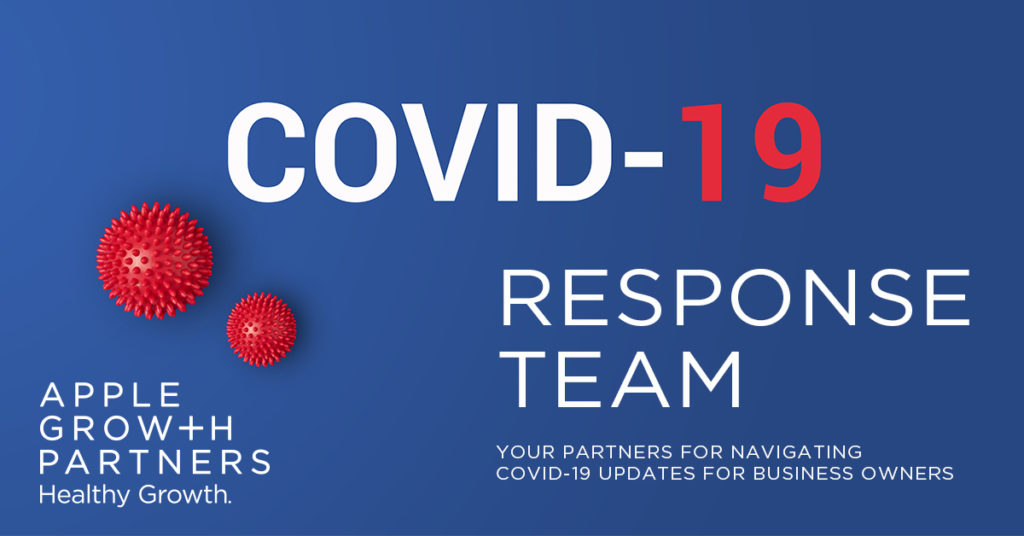
Thursday, May 14, 2020
By COVID-19 Response Team
On May 12, 2020, IRS released Notice 2020-29 announcing that it is permitting increased flexibility for Section 125 cafeteria plan midyear elections for employer-sponsored health coverage, flexible spending accounts (FSAs), and dependent care, along with clarifying that high deductible health plans (HDHP) can provide coverage for telehealth services retroactively to January 1, 2020. Notice 2020-33 increases the carryover limit of health FSAs. The announcement regarding midyear changes is welcome news as previously, elections made under a Section 125 cafeteria plan were irrevocable and had to be made prior to the first day of the year. Changes were permitted only when the were significant life events, a change is status, or significant changes in the cost of coverage.
Permitted Midyear Changes
As COVID-19 and its impact were not known at the beginning of the 2020 plan year, many situations have occurred where plan participants want and need to change their elected benefit(s). To address these situations, IRS Notice 2020-29 permits an employer to amend its cafeteria plan to allow employees to:
- Make a new election for employer-sponsored health coverage on a prospective basis, if the employee initially declined to elect employer-sponsored health coverage;
- Revoke an existing election for employer-sponsored health coverage and make a new election to enroll in different health coverage sponsored by the same employer on a prospective basis (including changing enrollment from self-only coverage to family coverage);
- Revoke an existing election for employer-sponsored health coverage on a prospective basis, provided that the employee attests in writing that the employee is enrolled, or immediately will enroll, in other health coverage not sponsored by the employer (Notice 2020-29 provides a sample attestation);
- Revoke an election, make a new election, or decrease or increase an existing election regarding a health FSA on a prospective basis; and
- Revoke an election, make a new election, or decrease or increase an existing election regarding a dependent care FSA on a prospective basis.
The election change can be made for any reason but may only be prospective.
Amending the Plan
Generally, amendments must be made to a cafeteria plan before a change takes effect. In Notice 2020-29, the IRS allows cafeteria plans to be amended to adopt the expanded mid-year election changes and/or the extended claims periods for health FSAs and dependent care FSAs for the 2020 plan year on or before December 31, 2021, as long as the cafeteria plan operates in accordance with Notice 2020-29, and the employer informs all employees who are eligible to participate in the cafeteria plan of the changes.
In determining whether to make the amendments, employers review their group health plan document to determine whether amendments need to be made to that document to allow for mid-year enrollments and changes.
Employers may adopt all, a portion, or none of these allowable changes. The Notice allows an employer “to limit election changes to circumstances in which an employee’s coverage will be increased or improved as a result of the election (for example, by electing to switch from self-only coverage to family coverage, or from a low option plan covering in-network expenses only to a high option plan covering expenses in- or out-of-network).” Additionally, employers can limit health FSA and dependent care FSA election changes to amounts no less than the amount already reimbursed. This protects employers from employees who have already been reimbursed up to their annual elections who now want to reduce their salary contributions to zero.
Extension of Claims Period for FSAs and Dependent Care
Notice 2020-29 also allows an employer to amend its cafeteria plan to allow employees to use amounts remaining in a health FSA or dependent care FSA after the end of a grace period or plan year that ends in 2020 to pay or reimburse expenses incurred through December 31, 2020. This relief applies to general purpose FSAs, limited purpose FSAs, and dependent care FSAs.
Employers must watch the coordination of this extended claims period and an HDHP. Employees who have unused amounts remaining at the end of the grace period ending in 2020 and who are allowed to use those funds for expenses incurred through December 31, 2020 will not be eligible to make HSA contributions for the remainder of 2020.
High Deductible Health Plans
Previously the IRS issued Notice 2020-15, wherein relief was provided to HDHPs to cover medical services relating to testing and treatment for COVID-19 before the satisfaction of the HDHP’s deductible. Notice 2020-29 clarifies that this relief applies to such medical services and supplies incurred on or after January 1, 2020.
The Coronavirus Aid, Relief, and Economic Security (CARES) Act temporarily allows individuals to remain eligible to make contributions to HSAs, if they are covered under an HDHP that provides telehealth or other remote care services without a deductible, or if they otherwise have access to telehealth or other remote care services outside of an HDHP. Notice 2020-29 provides this relief retroactively to January 1, 2020.
Notice 2020-23
Notice 2020-23 adds an automatic increase so the maximum carryover amount will be 20 percent of the maximum salary reduction contribution that an individual can make to a health FSA (which is indexed to inflation). As a result, the maximum amount that can be carried over from the 2020 health FSA plan year into the 2021 health FSA plan year will be $550 (20% of $2,750, the indexed maximum health FSA salary reduction contribution limit for 2020).
Employers that wish to adopt the increased limit (either explicitly or by reference) for 2020 have until December 31, 2021, to amend their cafeteria plan, provided the employer informs all employees who are eligible to participate in the cafeteria plan of the change.
Apple Growth Partners’ published material provides general coverage of its subject area and is presented to the reader for educational purposes based on the most current regulatory information available at the time it was written. All communications, whether written or oral should be reaffirmed prior to the submission of any application. All information in this published material and on our website is provided in good faith; however, we make no representation or warranty of any kind, express or implied, regarding the accuracy, adequacy, validity, reliability, availability, compliance with any law (federal, state or local) or professional standard or completeness of any information. We assume no responsibility to any recipient of this material to correct or update its contents for any reason, including changes in any law or professional standard. It is not intended to be audit, tax, accounting, advisory, consulting or investment advice. The information in this article is also not a substitute for legal advice and may not be suitable in a particular situation. Consult your attorney for legal advice.
Our articles, other published materials and website occasionally contain links to other web pages. Links to organizations and government agencies are provided as a convenience to our readers. The firm does not endorse and is not responsible for any third-party content that may be accessed from its website and does not recommend or endorse the use of any third-party’s services. The links are to be accessed at the user’s own risk, and the authors of this website make no representations or warranties about the content of these links.

